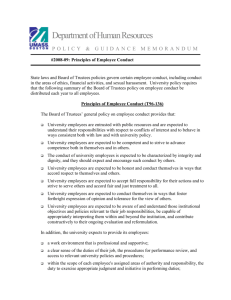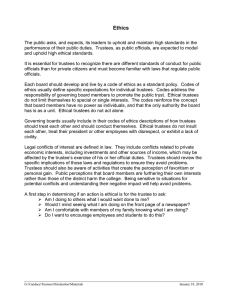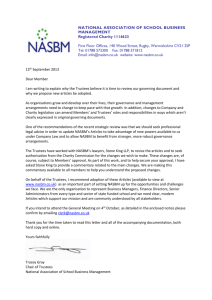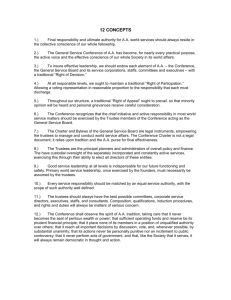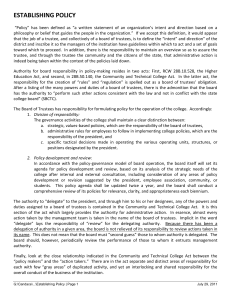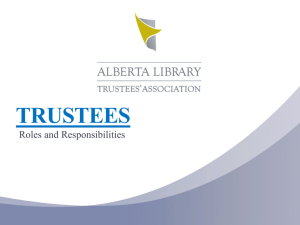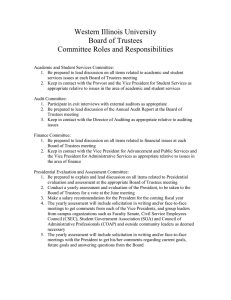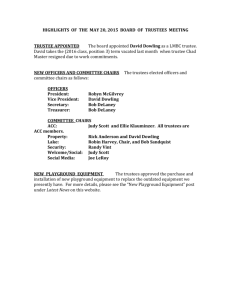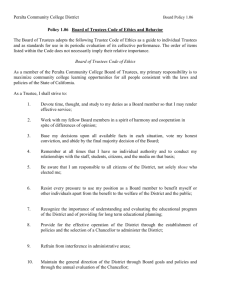07 Ethics Statement - Conflict of Interest
advertisement
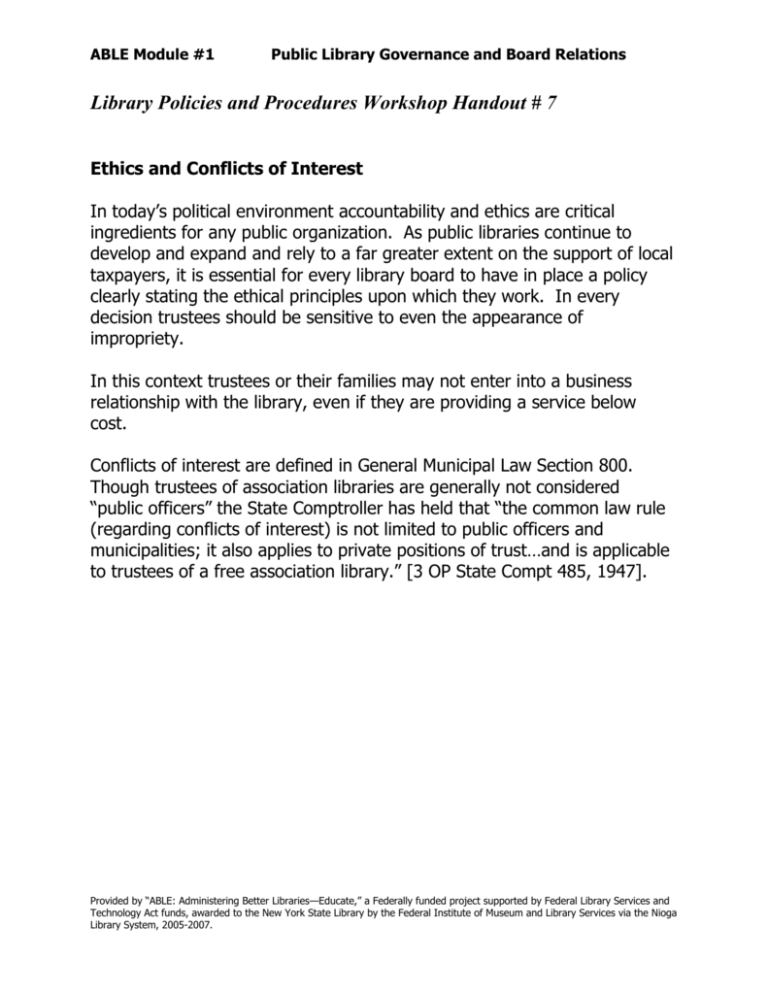
ABLE Module #1 Public Library Governance and Board Relations Library Policies and Procedures Workshop Handout # 7 Ethics and Conflicts of Interest In today’s political environment accountability and ethics are critical ingredients for any public organization. As public libraries continue to develop and expand and rely to a far greater extent on the support of local taxpayers, it is essential for every library board to have in place a policy clearly stating the ethical principles upon which they work. In every decision trustees should be sensitive to even the appearance of impropriety. In this context trustees or their families may not enter into a business relationship with the library, even if they are providing a service below cost. Conflicts of interest are defined in General Municipal Law Section 800. Though trustees of association libraries are generally not considered “public officers” the State Comptroller has held that “the common law rule (regarding conflicts of interest) is not limited to public officers and municipalities; it also applies to private positions of trust…and is applicable to trustees of a free association library.” [3 OP State Compt 485, 1947]. Provided by “ABLE: Administering Better Libraries—Educate,” a Federally funded project supported by Federal Library Services and Technology Act funds, awarded to the New York State Library by the Federal Institute of Museum and Library Services via the Nioga Library System, 2005-2007.
